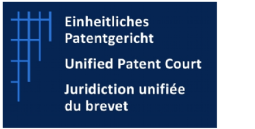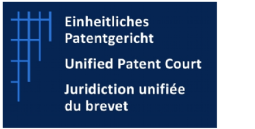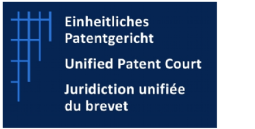This edition features updates from: Denmark, Germany, Brazil and the Unified Patent Court (UPC).
The Irides Weekly Update is our round-up of patent litigation news highlights from around the world. Taking its name from the plural of “iris” - a nod to the ability of Irides to see what’s happening around the world.

DENMARK
Eastern High Court denies preliminary injunctions against generic DMF products, despite EPO Opposition Division decision upholding underlying patent.
Those familiar with the practice of the Danish Courts will be aware that they typically adopt a very strong presumption of validity and rely heavily upon decisions from the European Patent Office (EPO). Preliminary Injunctions (PI) against generic infringers are usually granted as a result. A recent decision from the Eastern High Court, dated 18 July 2025, represents a departure from the Courts’ normal practice.
The patentee (Biogen) had obtained PIs in February 2025 against Sandoz and Glenmark on the basis of an auxiliary set of claims for its patent EP 2 653 873 (EP 873). The present case is an appeal of this decision.
EP 873 claims a 480 mg/day dose of dimethyl fumarate (DMF) in the treatment of multiple sclerosis. The patent was upheld by the Opposition Division (OD) in December 2024 in the form of an auxiliary request (AR12). AR12 is primarily limited to claiming the treatment of relapsing remitting multiple sclerosis. However, this OD decision diverged from the preliminary opinion issued in the same EPO proceedings in November 2023. The Court was keen to stress the pertinence of this divergence to its assessment of prima facie validity on appeal.
The preliminary opinion had found the therapeutic efficacy of 480 mg/day to be “pure speculation” based on the prior art: that prior art (which was also cited in EP 873) only showed efficacy of a 720 mg/day dose. In contrast, the OD had later decided the same prior art would give the skilled person no reason to doubt that the 480 mg/day dose would be an effective treatment for the purposes of sufficiency. The Court also noted that AR12 had been considered in the preliminary opinion to be invalid for added subject matter before the OD changed its mind at the oral hearing.
The Court found that these changes to the OD’s assessment of validity “in itself weakens the presumption of the validity of the patent in suit”. This conclusion applied to both EP 873 as granted (where the presumption was either cancelled or at least significantly weakened), and AR12.
The Court at first instance had only applied the presumption of validity to AR12. On appeal, the High Court agreed, noting that Biogen had not presented any new evidence or arguments to support the validity case on the granted claims.
On AR12, the Court concluded that G2/21 had been incorrectly applied by the OD. The Court considered it contrary to the purpose of G2/21, which was directed at avoiding speculative (armchair) inventions, if Biogen were allowed to use post-published data where an inventive step could not be deduced from the application as filed. The High Court concluded that it must be assumed that AR12 will be held by the Technical Board of Appeal to be invalid due to lack of inventive step. In the alternative, if the Technical Board of Appeal does not consider the patent invalid due to lack of inventive step, the Court assumed that EP 873 will be found to be invalid due to insufficient description, relying in part on a parallel decision concerning the Dutch designation of EP 873 by the District Court of the Hague.
The EPO Technical Board of Appeal is due to review the validity of EP 873 at the end of this year. As the Court considered it doubtful that the Board would uphold the validity of AR12, the PIs issued against Glenmark and Sandoz were therefore overturned.

GERMANY
Munich Regional Court issues guidance note clarifying approach to Huawei/ZTE test and approach to FRAND rate setting.
In the ongoing global FRAND dispute between Samsung Electronics and ZTE Corporation the Munich Regional Court has issued a procedural note outlining its approach to Fair, Reasonable and Non-Discriminatory (FRAND) licensing obligations in Standard-essential Patent (SEP) disputes. The guidance is intended to clarify the Court’s interpretation of the ECJ’s Huawei v ZTE framework and to distinguish the Regional Court’s position from that of the Munich Higher Regional Court. A detailed consideration of the guidance will be provided in a separate article.
A key point to be noted is the strongly contrasting view on interim licences expressed by the Munich Regional Court when compared with the decision of Mr Justice Mellor (Mellor J) in the English High Court ([2025] EWHC 1432 (Pat)). The Court noted that, while parties are free to agree interim licences, it could see “no need for interim licences between parties that are actually willing to license”. Furthermore, the Court was less concerned by the pressure of litigation on negotiations. In its view, “when companies with a certain amount of business experience are involved, legal proceedings are part of what typically has to be endured and only have a minor impact on negotiations”.
In addition the Court states that “contrary” to statements made [in the Mellor J judgment] it did “not see any risk of conflicting decisions if all courts respect national borders”. It highlighted this was so in respect of Germany since “both the injunction and obligation to pay damages are limited to the territory of the Federal Republic of Germany”. In what may be seen as a warning against judicial overreach, the Court went to say it is “unacceptable for defendants to attempt to block the enforcement of injunctive relief by bringing proceedings before the courts of other countries”. However, reflecting on the instant decision by Mellor J, it confirmed that because “the UK High Court's decision expressly emphasizes the independence of the courts in other countries, there is, at least at present, no comparability with an anti-suit injunction.”
The Munich Court also expressed the view that is not “contradictory behaviour if the parties seek the determination of a license on the one hand and injunctive relief on the other. In the Chamber's view, a worldwide determination can only be made if both parties agree.” This is a clear distinction from the approach in the UK where, further to Unwired Planet, a worldwide determination is available without mutual agreement and, in view of the interim licence caselaw, the seeking of injunctive relief is seen to be incompatible with the desire to agree a licence.

BRAZIL
IP Bridge successful in obtaining a preliminary injunction against BYD in relation to 4G technology in automotive services.
The 1st Corporate Court of the Capital District in Rio de Janeiro granted a Preliminary Injunction (PI) in favour of IP Bridge, a Japanese patent holder, against BYD DO Brasil. The case, Godo Kaisha IP Bridge v BYD DO Brasil concerns alleged infringement of IP Bridge’s Brazilian patent PI 0908287-5, which covers 4G connectivity technology used in automotive systems. IP Bridge claimed that BYD had implemented the patented technology in cars with 4G connectivity sold in Brazil without a licence. IP Bridge claimed that it had licences with 85% of companies in the automotive sector.
Art. 300 of the CPC establishes that "urgent relief will be granted when there is evidence of the likelihood of the right and the danger of damage or the risk to the useful outcome of the process”. The Court found sufficient evidence of the patent right, infringement by BYD and urgency to grant relief. The court noted that the patent expires in 2030 and that continued unauthorised use would undermine IP Bridge’s exclusive rights. The judge ordered BYD to cease use of the patented technology in its vehicles within five days of notification, under penalty of a daily fine of R$20,000 (capped at R$600,000). BYD was also ordered to provide information on compliance and submit accounting records to assess damages.

UPC
UPC grants first injunction covering the UK
(UPC_CFI_365/2023 and UPC_CFI_359/2023).
In a recent decision by the Mannheim Local Division, it was held that the UPC had jurisdiction to grant an injunction covering the UK. Fujifilm had brought proceedings against three Kodak companies domiciled in Germany (together Kodak) for infringement of the German and UK designations of its European patents related to printing plates in both the Düsseldorf and Mannheim Local Divisions. The proceedings against Kodak in the Düsseldorf division were concluded earlier this year when the UPC held it did have jurisdiction to rule on infringement in the UK but this was not necessary as the patent was held to be invalid in Germany and likely invalid for the same reasons in the UK (previously reported here).
In the Mannheim Division, the infringement claims were separated for each patent (EP 3 511 174 (EP 174); case UPC_CFI_365/2023 and EP 3 476 616 (EP 616); case UPC_CFI_359/2023) with Kodak challenging the validity in both cases. The Court also separated the part of the decision relating to its jurisdiction over the UK designations as the CJEU’s decision in BSH v Electrolux (C‑339/22) had not been handed down by the end of the oral hearing in this case. In April this year, the Court held that the German designation of EP 174 was valid based on Fujifilm's main request and that Kodak infringed the patent in Germany while EP 616 was held to be invalid.
In the separated proceedings relating to the UK designation of EP 174, the Judges confirmed that as a result of the CJEU’s ruling in Electrolux, the UPC did have jurisdiction to decide infringement of the UK patent, even if invalidity was raised as a defence. This was on the basis that Art. 4(1) of the Brussels I Regulation applied as the Defendants were domiciled in an EU Member State (Germany) and the patent was granted in a non-EU member state (the UK) that was not a party to the Lugano Convention or another bilateral agreement. The Court noted that there were no infringement or validity proceedings in the UK relating to the patent so Art. 33 or 34 (pursuant to which the Court of the Member State may be required to stay proceedings) did not apply. The Court also concluded that Art. 34 of the UPC Agreement (UPCA) did not restrict the UPC’s ability to apply the Electrolux jurisdiction. There was no indication that the UPCA contracting states had intended to transfer to the UPC their jurisdiction with regard to their own designation of a European patent whilst reserving jurisdiction to their national courts for other designations.
The Court considered the validity of the UK designation as a pre-requisite for a finding of infringement and stated that the UK designation of EP 174 in the proposed amended form was deemed valid for the same reasons as the German designation had been found to be in the earlier hearing. No arguments had been put forward that an English Court may apply UK or EPC law in a different way which would lead to a different outcome on validity. Kodak argued that, given EP 174 had been upheld in amended form, Fujifilm should notify the UK patent office of these amendments as this is a requirement of UK procedural law. The Court disagreed, explaining that procedural matters are governed by the procedural law of the forum at hand (i.e. UPC law) in accordance with the fundamental principles of international law. In addition, a finding of infringement and validity based on an amended form of the UK patent would only have inter partes effect and would not require the UK register to be amended.
In considering validity, the Court held that Kodak’s request for a declaration in relation to the validity of EP(UK) 174 patent was inadmissible but left it open as to whether Kodak were requesting the UPC to grant declaratory relief or to revoke the national patent. In any event, it reiterated that the UPC did not have jurisdiction to revoke the national part of a European bundle patent for non-UPCA contracting states. On declaratory relief, the Court left open the possibility that, following BSH v Electrolux, courts in the European Union had jurisdiction to grant declaratory relief in relation to UK patents. However, the Judges commented on the fact that Kodak did not actually have a relevant interest in a declaration that the UK part of the patent was invalid as it would not be binding on the UK authorities or on the patentee in revocation proceedings in the UK (if it was, the UPC would indirectly decide on the validity of the UK national patent and this would be counter to the principles established by the CJEU).
Fujifilm put forward evidence of Kodak’s activity in the UK and on the law of infringement in the UK, including the law on direct infringement and joint tortfeasorship. Kodak disputed the infringement allegations, arguing that title in the products manufactured for the UK rested with Kodak’s UK affiliate and that it was entitled to rely on a private/continuing prior use defence. However, the Court held that Kodak had failed to provide sufficient evidence to support its position. As such, the Court found that all three Kodak defendants were either directly or jointly carrying out infringing acts in the UK and rejected arguments on the prior use defence (as it had done in the main proceedings), whether under German or UK law.
Following this, the Mannheim Local Division considered the Claimant’s request for a permanent injunction, noting that although the request had its basis in UK law it had not been submitted that the Court’s powers to grant an injunction differed from its powers under the UPCA. As such, the Court had discretion to grant the permanent injunction under both UK law and the UPCA which it chose to exercise, referring to the reasoning in its main decision relating to the German designation in which a permanent injunction had been granted. The Court ordered Kodak to pay damages to compensate all losses caused by infringing acts in the UK since 2019, destroy any infringing products in the UK and set a penalty due in the event that the injunction was breached.
In the proceedings relating to the UK designation of the patent EP 616, of which the German part had been revoked in the earlier main proceedings, it was held that the UK patent would likely be invalid for the same reasons and given Fujifilm had failed to provide any evidence that validity would be assessed differently under UK law. As such, the infringement action regarding the UK designation was unfounded and inadmissible. As in the EP 174 proceedings, the Court held that the request for a declaration on validity was inadmissible as the UPC only has jurisdiction to assess the validity of a UK patent as a pre-requisite for a finding of infringement.

UPC
Court of Appeal Upholds Ex Parte Evidence Preservation Order (UPC_CoA_327/2025).
The UPC Court of Appeal has upheld an ex parte order for preservation of evidence and inspection of premises (commonly referred to as a "saisie-contrefaçon") in Maguin v. TIRU, clarifying key procedural standards. The case involved European Patent EP 3 178 578, owned by TIRU, covering a waste incineration plant and process. TIRU had sought ex parte measures against Maguin and VALINEA, the furnace manufacturer and operator, after discovering a YouTube video suggesting potential infringement. The application was filed just over 2 months after that YouTube video became available.
Maguin appealed an order of the Paris Local Division that allowed evidence-gathering measures without prior hearing, arguing lack of urgency, no real risk of evidence loss, and failure by TIRU to disclose allegedly relevant prior art (the "Laurent Bouillet" furnace). The Court rejected these claims. It confirmed that urgency for preservation measures (r. 194.2 RoP) is distinct from the urgency standard for provisional injunctions (PIs). For evidence preserving measures, the Court shall exercise its discretion by taking into account the urgency of the need to preserve the evidence in question in order to determine whether and to what extent it wishes to hear the defendant. This is distinct from the requirement to avoid unreasonable delay in respect of PI measures.
The Court stressed that the risk of evidence disappearance need only be probable, not certain, and that digital data risks and operational constraints justified swift, coordinated inspections in this case.
Notably, the Court also held that a patentee seeking evidence preservation does not need to disclose prior art unless it is clearly material to the ex parte decision. Also in contrast to PIs, the validity of the patent does not need to be assessed at this stage; such issues are reserved solely for proceedings on the merits (or a PI) except where the presumption of validity can clearly be called into question, for example, following a decision by an Opposition Division or a Board of Appeal of the EPO.
This decision provides important guidance on the thresholds for ex parte saisie applications, the limits of the applicant’s duty of candour, and the discretion afforded to UPC judges when balancing efficiency, proportionality, and due process.

UPC
Court of Appeal enters default judgment for failure to provide security of costs
(UPC_CoA_363/2025).
This case before the Court of Appeal concerned an application by Microsoft for a decision by default against Suinno Mobile & AI Technologies Licensing Oy.
Suinno had initiated infringement proceedings against Microsoft in April 2024 before the Central Division in Paris. In response, Microsoft filed a counterclaim for revocation and requested security for costs under r.158 RoP. The Central Division granted this request in September 2024, ordering Suinno to provide €300,000 as security within one month and informed Suinno that, pursuant to r.158.4 RoP, if it failed to provide the security within the time stated, a decision by default may be given in accordance with r.355 RoP. Suinno appealed the order, but the appeal was dismissed.
When Suinno failed to provide the security within the stipulated time, Microsoft applied for a decision by default under r.158.5 and 355 RoP. The Central Division rejected this application in April 2025, reasoning that, pursuant to r.355.2 RoP. the pleadings did not allow a confident assessment of the patent’s validity or infringement and so, in exercising its discretion, a default judgment would not be entered.
The Court of Appeal clarified that r.355.2 RoP applies only to decisions by default against defendants, not claimants. Therefore, the Central Division had erred in applying this rule to deny Microsoft’s request. The Court held that under r.355.1(a) RoP, a decision by default may be issued against a claimant who fails to take a procedural step (such as providing security for costs) within the required timeframe.
The Court emphasised that the effectiveness of r.158 RoP depends on the enforceability of consequences for non-compliance. It rejected Suinno’s arguments that the status quo of the action or the merits of the case should prevent a default decision (or its argument that it could in fact lead to a default decision going against either party). The Court also dismissed Suinno’s reliance on art. 37 of the Statute of the UPC, stating that the RoP allow for additional grounds for default decisions.
Accordingly, the Court revoked the Central Division’s order, issued a decision by default against Suinno dismissing the infringement action and ordered Suinno to bear the costs of the first instance and appeal proceedings.
This decision underscores the UPC’s strict approach to procedural compliance, particularly regarding security for costs, and shows that the Court can and will issue default judgments where parties fail to meet procedural obligations.

/Passle/5f3d6e345354880e28b1fb63/MediaLibrary/Images/2025-09-29-13-48-10-128-68da8e1af6347a2c4b96de4e.png)
/Passle/5f3d6e345354880e28b1fb63/MediaLibrary/Images/2024-08-23-11-31-07-354-66c872fb971eecc249d83d40.png)
/Passle/5f3d6e345354880e28b1fb63/SearchServiceImages/2026-02-16-10-20-56-766-6992ef880e356ebc236b9557.jpg)
/Passle/5f3d6e345354880e28b1fb63/MediaLibrary/Images/2025-07-10-13-52-35-189-686fc5a39f23a993118ba1a0.png)